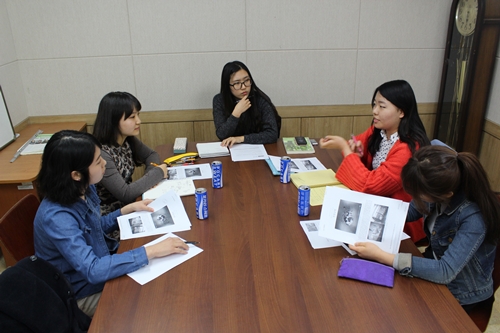동물실험
Time to End Animal Testing for People
. By Son Hyun-jee, Student Editor Last March 11th, the European Union (EU) Commission asked not only EU countries but also the EU's trading partners to ban sales of all new cosmetics containing animal-tested ingredients. No matter where the testing was carried out on animals, the ban applies to all new cosmetics and their ingredients sold in the EU counties. Although the 27 countries of the EU have banned animal testing since 2009, cosmetics firms have been allowed to keep doing the animal testing for human health. However, those tests now come under the ban too. Some domestic and foreign cosmetic companies which have promoted their non animal-tested products welcomed this implementation and others, one by one, declare there are no more animal tests from now on. The legislative hearing on banning testing cosmetics on animals was held on March 21st in the National Assembly with representatives of the Ministry of Health, the Food and Drug Administration and the Korean Animal Welfare Association. “There is hardly any connection between human skin and animal skin, so it is meaningless to continue on vicious tests.” said Dr. Nicholas Douglas Palmer, the Director of Policy in Cruelty Free International, disagreeing with animal testing for cosmetics.
What do students think about animal testing? In this discussion, four sophomore students who major in nursing shared their views on animal tests on March 22nd. “According to utilitarianism, sacrificing of few animals for the sake of many human beings cannot be helped.” said Jeong Dan-byeol agreeing with animal testing. Kim Sin-young argued that utilitarianism cannot always be right and also the effect of animal tests can be dubious. Jo Ha-eun added that there are more efficient methods than animal testing. “Episkin was developed by the biggest French cosmetic company not only to replace animal testing, but also to be the biological tool that will largely replace clinical trials. It can be a great substitute.” For cheaper substitutes of foreign products, a Korean company developed Neoderm last year, an artificial skin model mimicking the histology of human skin. However, Ha Ji-yun said that no matter how much small businesses want to stop the animal testing, they cannot utilize those products easily because of the expenses. “Animal tests can be stopped after solving the problem with costs of substitutes.”
All participants agreed that animal tests just for the interest of people like cosmetic products are not appropriate. But they said those for advancement of medicines should be allowed in some degree. “If institutes are allowed to use animal testing for new medicines, they should let the public know how studies have been done.” said Jo Ha-eun.
According to the result of a survey conducted by the Korean Animal Welfare Association in 2011, 97.4% of respondents prefer non animal-tested cosmetics and 95.1% think that whether it is tested or not should be clearly marked in the product. Replacement, Reduction, Refinement—those are 3Rs for the laboratory animal. We should find other methods, lower the number of laboratory animals and alleviate their pain. Reckless sacrifice only for human beings should be stopped. The world more and more finds other substitutes instead of animal testing. “It is time to seek the solution for coexistence with all living things.” said Jeong Dan-byeol one of the participants.

